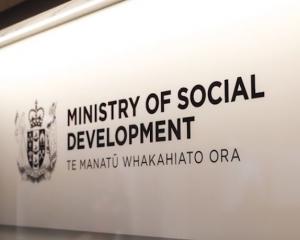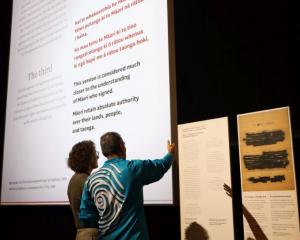New Zealanders caught by Australian laws excluding most from social welfare, higher education and access to permanent residency are increasingly becoming guest workers paying full tax but with few rights.
Australian critics of the policies warn that the nation is creating a permanent underclass of expatriate Kiwis, losing significant human and economic potential while storing up major social problems, including poverty and rising crime rates.
Victoria University senior lecturer Kate McMillan said most New Zealanders might see their access to Australia only as an opportunity - without realising the potential pitfalls.
"How much do people know before they go?" she asked.
Most Kiwis in Australia have no safety nets in case of injury or misfortune. They have little chance of gaining full rights or citizenship however long they might live there.
Dr McMillan said children who moved to Australia at a young age were among those worst affected.
"The laws have changed a lot in relation to them. They're very much the ones who are caught out."
She said there should be more of a public debate about having a single economic market with Australia if there were going to be such inconsistencies and disadvantages.
Labour's foreign affairs spokesman, Phil Goff, said the issue was about long-term residents who were stuck in permanent second-class status.
"There's an increasing number of people who, for all intents and purposes, can be regarded as Australian, because they've made a permanent commitment and their kids have grown up thinking they're Australian."
But - unlike Australians in New Zealand - they remained unable to vote, and barred from public benefits.
"It's absolutely one-sided," he said.
The Australian Government has been told the rules introduced in 2001 run counter to concepts of equity and its policy on multiculturalism, and the exclusion of New Zealanders from some state programmes has been defeated by anti-discrimination suits.
New Zealand and Australian critics of the policies further claim that by targeting Kiwis on the basis of nationality, Australia has breached important international treaties on human rights and discrimination.
The repercussions are felt by Kiwis everyday. Gregg Harris, who has worked in Port Douglas, north Queensland, for almost five years, injured his ankle in December while helping a friend fix a fence.
He will be off work for almost seven weeks, but he has been unable to get any hardship assistance - or even his Australian superannuation.
Australia, supported by its Human Rights Commission, denies the allegations of legal discrimination and maintains that the 2001 changes ended preferential treatment for New Zealanders and ensured all migrants were treated equally.
It also says permanent residency is available to Kiwis, although the difficulties of shifting from the "non-protected" Special Category Visas that came into force in 2001 weigh heavily against most expats.
Moves to change the 2001 rules continue to be stonewalled by the federal Government and diplomatic attempts to influence Canberra appear to have run out of steam, despite efforts by officials on both sides of the Tasman to find solutions.
With both major parties in Australia sharing a common view, no interest in the issue by the media there, and increasing economic pressures, any early relief for the expatriate NZ community is unlikely.
The large numbers of New Zealanders recruited by Australian companies to fill gaps in the skilled workforce, and by others moving in the hope of making a better life across the Tasman, will only deepen the dilemma.
- Greg Ansley and Michael Dickison of the NZ Herald











